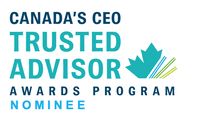|
We’ve all had those interpersonal interactions we wish we could take back. Those moments when you were tongue-tied and at a loss for words, or when you had all the wrong words …and said them. I’m as guilty as the next person of re-arguing my point in my head for days, trying to make sense of a vulnerable moment, or misguided exchange. If I’m being honest with myself, sometimes I’m doing it to be right, justifying my words in my own mind, even when there is no hope that what I said ever could be “right”. It’s hard reliving your worst moments over and over again in your mind, especially since you can’t go back in time and change what happened. It’s a human thing to want to re-run the tape, erase the bits you don’t like, and record a better outcome. That’s essentially what our brain is trying to give us when it won’t let something go. So, how to get out of the loop? When we are replaying things in our mind and having a hard time getting them to stop it’s usually because there is still something we need. In most cases it’s a way to put it to rest, and the best way to do that is through intention. Here are three simple and specific things you can do to stop the loop, allowing you to let go and move on (cue the nourishing deep breath).
These three steps are most valuable when you choose to look at them through the lens of deep self-compassion. Doing these three things will get the incident out of your head and free you from the energy-sucking loop of replaying a painful moment. “The truth is, unless you let go, unless you forgive yourself, unless you forgive the situation, unless you realize that the situation is over, you cannot move forward.”
|
|
|




